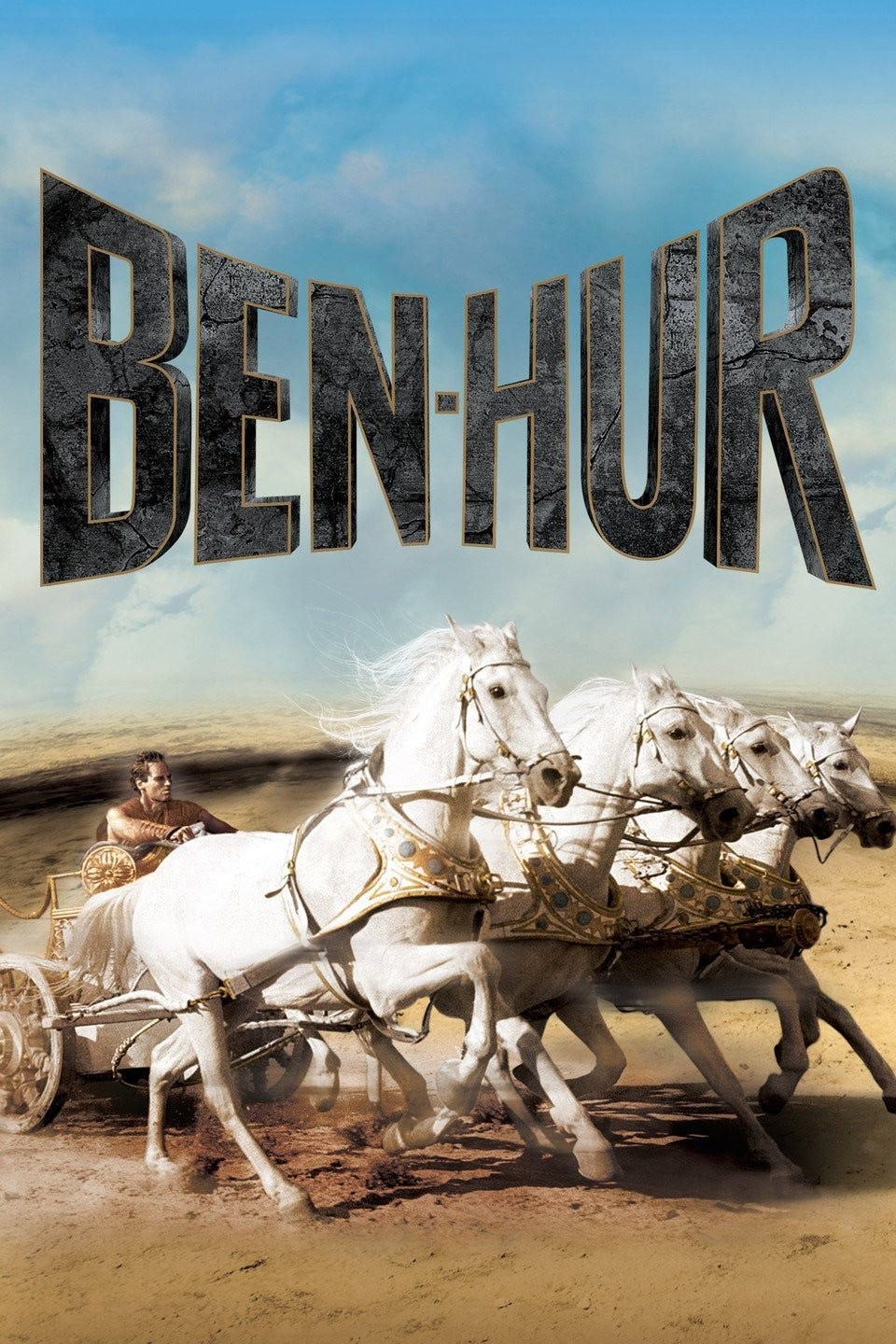I watched Ben-Hur for the first time this past week while I babysitting for my brother. Didn’t really know what to expect, other than my brother watches it every year at Easter time, so presumably it had something to do with Easter themes. I should clarify - I started watching it while I babysat. If you’ve seen it, you’ll know that this movie is a marathon. Over 3 1/2 hours long. I finished it at home another day, and I must say it’s a great, great film.
It’s set at the time of Christ in Judea, and the basic premise is based around vengeance. After old friends go at odds with each other over a difference in allegiance: one being a Jew (Judah Ben-Hur), the other being a Roman Tribute (Messala).
Judah Ben-Hur is made a slave in the Roman Empire and forced to serve as a rower in the Roman fleet. His sister and mother are thrown into prison, where they develop leprosy. When their ship is destroyed, Judah Ben-Hur saves the life of his commander; Quintus Arrius. Quintus adopts him as his son, and Judah Ben-Hur makes his way back to Judea, where he finds his sister and mother in the valley of the lepers. He enters a chariot race against Messala which he wins, and after being thrown off his chariot and trampled under another one, Messala dies.
The heart of the story.
What makes this a good film? If you remember from the last movie review we did, at the heart of any truly great film is its adherence to the rule of Universals and Particulars. So, what’s the thing that makes this film Universal? What connects it to the widest audience possible? Well, we already mentioned it above. Vengeance is a funny thing. It focusses your gaze with a sole purpose, while blinding you from reason. I think it’s probably fair to say that everyone has experienced the desire for vengeance at one time or another. Not necessarily in dramatic fashion that Judah Ben-Hur did, but probably to some degree. It’s such a personal issue - truly a Particular. And it's precisely in that personal struggle that the larger Particular is able to shine through: Forgiveness - the other cornerstone of this film.
In vengeance lies only destruction, which affects not only you, but those around you. But in forgiveness lies peace, which spreads like wildfire. These are both Universal and they’re both at the heart of this story. See, Judah Ben-Hur has to decide whether he wants destruction or peace, and by doing so engages in our own personal struggle. That’s why this film is so good - it cuts us open and showcases our internal conflict to ourselves.
Quite the fitting story to close out the end of the lenten season of preparation.
Highly recommend a watch if you haven’t seen it.
Until the next one,
Pax.





